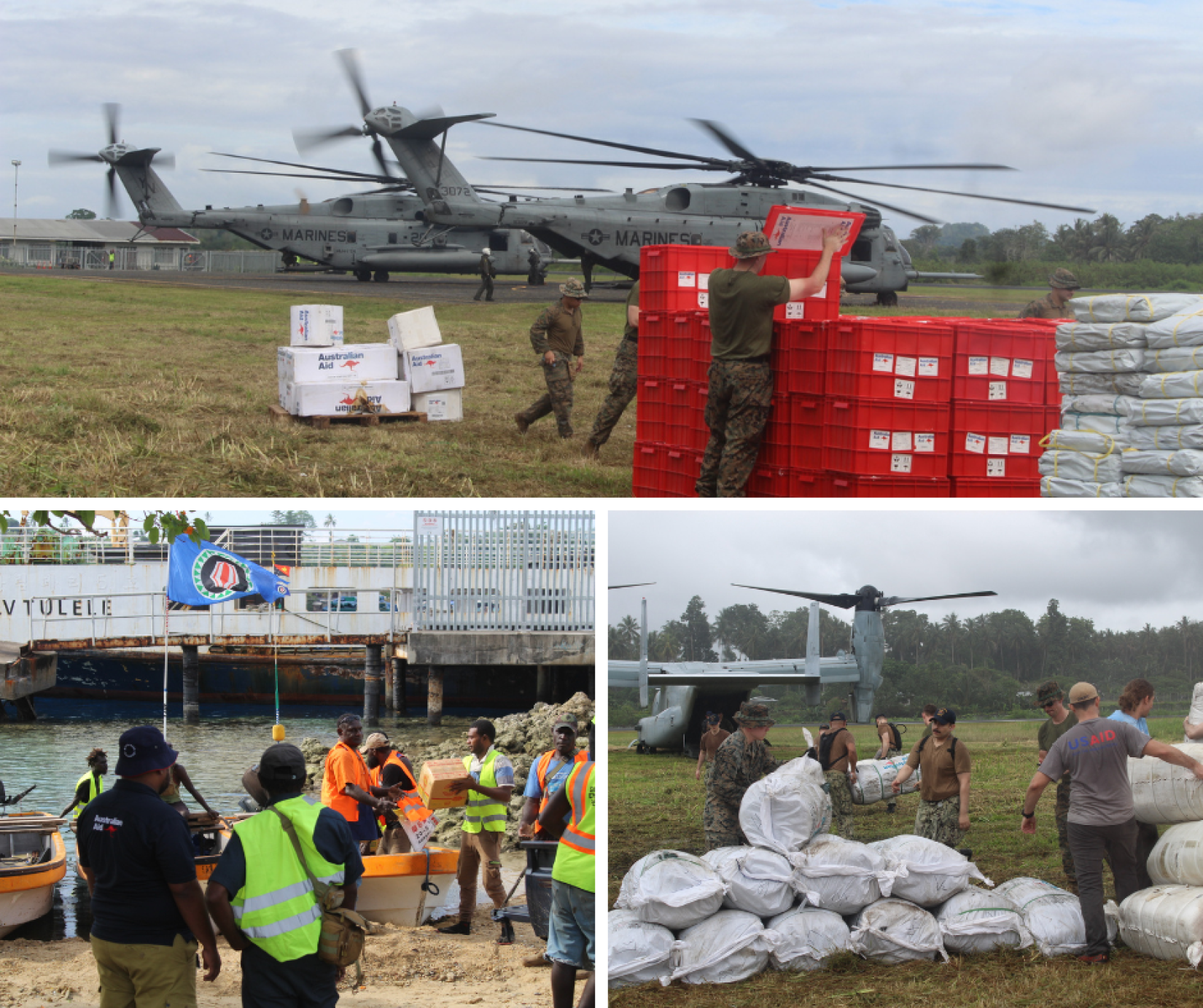Mt. Bagana (AROB) on World Humanitarian Day - UN Resident Coordinator, Mr. Richard Howard
19 August 2023
On World Humanitarian Day, the United Nations Resident Coordinator in PNG, Mr. Richard Howard, acknowledged the hard work of the humanitarian workers in Papua New Guinea and those currently attending to the Mt Bagana Eruption in the Autonomous Region of Bougainville.
World Humanitarian Day is an annual campaign by the United Nations Office for the Coordination of Humanitarian Affairs (OCHA) to commemorate anniversary of the attack on the UN headquarters in Baghdad, Iraq in 2003
On 19 August 2003, a bomb attack on the Canal Hotel in Baghdad, Iraq, killed twenty-two (22) humanitarian aid workers, including the UN Special Representative of the Secretary-General for Iraq, Sergio Vieira de Mello.
Five years later, the United Nations General Assembly adopted a resolution designating 19 August as World Humanitarian Day (WHD).
Each year, WHD focuses on a theme, bringing together partners from across the humanitarian system to advocate for the survival, well-being and dignity of people affected by crises. The day also reinforces the need for the safety and security of aid workers.
The focus this year is on the importance, effectiveness and positive impact of humanitarian work.

No matter the danger or the hardships, humanitarians venture deep into disaster-stricken regions and work at the front lines of conflict, while striving to protect people in need.
This year’s theme: #NoMatterWhat. Despite the work being difficult and dangerous, humanitarians accept the challenges with a commitment to overcome and deliver life-saving assistance to people in need.
Mr. Howard said, “It is imperative that the government invests in disaster management and disaster risk reduction to enable the national and provincial governments to adequately respond to a nationwide-scale emergency”.
Mr. Howard acknowledged the DMT Members, development partners; World Bank, DFAT, EU, Japan, MFAT, USAID, and the Red Cross Movement, World Vision, Caritas, PNG Council of Churches, ADRA, CARE, MAF, ChildFund, Equal Playing Field, MSF, Oxfam, Plan and Save the Children, for their continued humanitarian worked in Papua New Guinea.
ENDS
////////////////////////////////////////
Background
Papua New Guinea (PNG) is highly exposed to natural disasters and the impacts of climate change. People across the country are particularly exposed to seasonal drought, flooding, and associated hazards such as landslides.
Most of the country’s population is exposed to earthquakes, volcanic eruptions and tsunamis. Biosecurity threats have also placed the nation’s food supply in jeopardy.
There are 94 active volcanoes in PNG, the most active being Manam; Kadovar; Lamington; Langila; Ulawun; Rabaul; and Bagana. The total population living within 30km of a volcano is estimated to be more than 1 million people or 17% of the population.
In light of the recent volcanic eruption of Mt Bagana in the Autonomous Region of Bougainville (AROB), humanitarians are on the ground coordinating the delivery of relief supplies and ensuring no one is left behind.
United Nations Resident Coordinator in PNG, Mr. Richard Howard, acknowledges the hard work of the humanitarian workers attending to the Mt Bagana Eruption in AROB.
On 31 July, the National Disaster Centre (NDC) of Papua New Guinea formally welcomed international support through the United Nations Resident Coordinator’s Office to formally respond to Mt Bagana Volcano affected populations in Wakunai and Torokina districts.
Pursuant to this request, the UN through the Disaster Management Team (DMT) and the Inter-Cluster Coordination Group (ICCG), deployed a multi-agency team to conduct assessments of humanitarian impacts of the volcano and to advise development partners on basic needs and priorities of the affected populations. The team was deployed on 7 August and comprised of cluster experts in protection, water, and sanitation (WASH), information management, logistics and emergency operations coordination. The multi-agency team were further supported by shelter, camp coordination/camp management (CCCM) and food security officers from IOM and FAO who had presence on the ground.
UN’s Plan moving forward to address disasters
The United Nations Office for the Coordination of Humanitarian Assistance (OCHA) maintained a country office in PNG from 2009 until 2015. During that time, it established a Humanitarian Country Team (HCT) that remains in place as the Disaster Management Team (DMT), which is co-chaired by the United Nations Resident Coordinator and the Director of the National Disaster Centre, the country’s national disaster management agency, which currently sits under the Ministry of Defence.
The DMT includes among its members UN cluster lead agencies, international NGOs, faith-based organizations, the Red Cross Movement, and key development partners.
Since 2016, the DMT, at the request of the national government, has mobilised international resources for at least one disaster or crisis each year. Beginning with El Niño-related drought and food insecurity in 2016; Kadovar volcanic eruption displacement in 2018; Highlands earthquake displacement and polio outbreak in 2018; early action planning for El Niño-related drought, Ulawun volcanic eruption displacement and a small refugee emergency in 2019, COVID-19 in 2020, Election-related violence in 2022 and the recent Bagana volcanic eruption this year.
The UN in PNG is keen on advancing its current interventions on humanitarian coordination and disaster/emergency management through building organizational/institutional capacity of frontline first responder government agencies including the PNG National Disaster Centre and Provincial Disaster Coordination offices.









